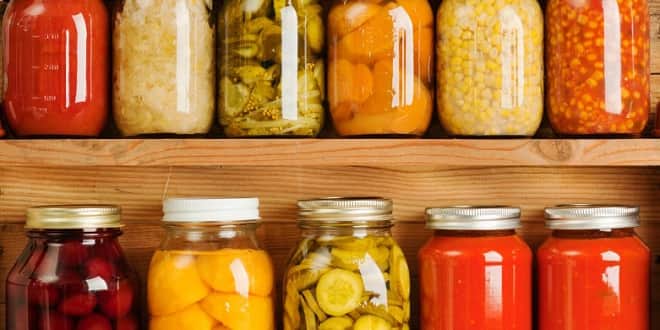These can be made in a day or two in contrast to those that are fermented or brined and cured,a long-term process.In this process, it is important to use a good quality, clear, commercially prepared vinegar that is free from sediment with five percent acetic acid. Home-made vinegar should not be used.Distilled white vinegar helps keep the original color, while cider, wine or malt vinegar may slightly darken the food.Because the vinegar is part of the preservationprocess, it is important not to vary the amount recommended in the recipe. Use reliable, up-todate recipes.
Be creative in pickling fruits and vegetables.Feel free to add or omit herbs and spices, but do not alter the basic ingredients. The ratio of vinegar to vegetables is determined in recipes to insure their safety and quality.In this quick vinegar method, the fruit or vegetables are usually packed into jars, then covered with a hot vinegar solution. They are generally processed in a simmering hot water bath of 170 to 180°F. Some pickled foods can be safely open-kettle canned. Open-kettle canning,however, does contribute to a higher rate of spoilage and seal failures and is therefore not recommended.
…

